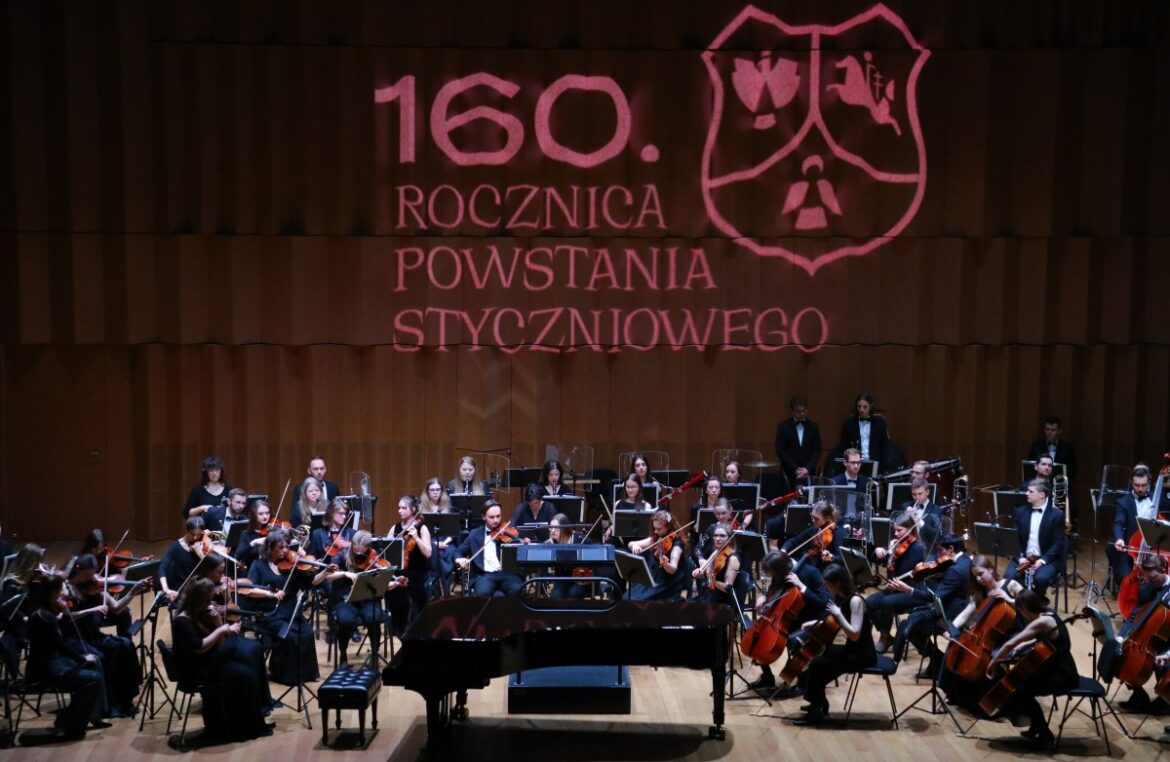“Today’s concert commemorates the next anniversary of the January Uprising, which occurs in these days. The memory of the Uprising is deeply rooted in us. Through art and literature, it is part of the Polish imaginarium”, wrote Bartłomiej Sienkiewicz, Minister of Culture and National Heritage, in a letter addressed to the participants of the symphonic concert “Moniuszko, Paderewski, Palester”.
Performed by the Jerzy Semkow Polish Sinfonia Iuventus Orchestra under the direction of conductor Norbert Twórczyński, the concert was organised on Saturday 20 January as part of the celebrations of the 160th anniversary of the January Uprising at the Polish History Museum.
“We meet here in the impressive new Museum building, completed only in September 2023, which is at the same time part of the great museum complex being created at the Warsaw Citadel, a place symbolic of Polish history and especially of the history of the January Uprising. It was here that its epilogue took place. Nearby is the execution site where the Uprising’s dictator Romuald Traugutt and other members of the National Government were executed on 5 August 1864”, indicated Minister Bartłomiej Sienkiewicz in his letter.
The head of the Ministry of Culture emphasised that the Citadel, according to tsarist orders, was to tower over Warsaw as a symbol of Russian power, strength, and domination, and today it is a place where Polish history is told and taught.
The symphonic concert “Moniuszko, Paderewski, Palester” was an event paying tribute to the heroic participants of the January Uprising, who defied the Russian invaders and inspired subsequent generations to fight for independence.
The concert programme consisted of two parts. During the first part, the participants heard two pieces – “Mazur” from Stanisław Moniuszko’s opera “Halka”, and “Piano Concerto in A minor” by Ignacy Jan Paderewski performed by pianist Jan Wachowski. In the second part, the Sinfonia Iuventus Orchestra presented music to Roman Palester’s ballet ‘Song of the Earth’, in which the composer combined elements of folklore with his contemporary musical language.
Adrian Andrzejewski





